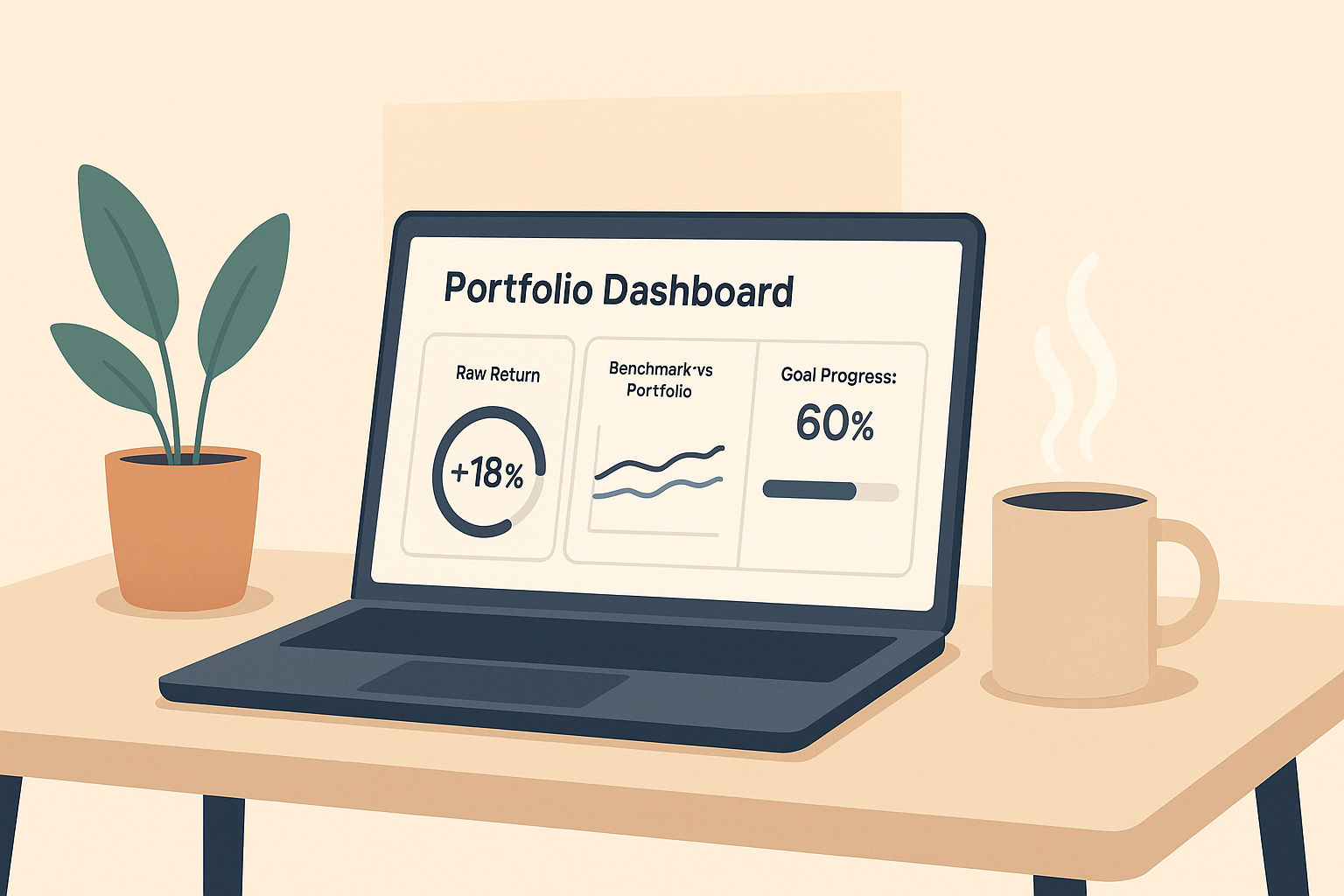"How am I doing?" It sounds simple enough – the kind of question you might casually toss out to your financial advisor between sips of coffee. But having spent years talking to investors both savvy and struggling, I've come to recognize this seemingly straightforward query as perhaps the most deceptively complex question in personal finance.
I was reviewing my own portfolio yesterday (admittedly while avoiding a deadline on something else) when this whole concept hit me. We're obsessed with measurement, yet we rarely stop to consider what we're actually measuring.
Most folks default to raw returns. They'll corner you at parties with triumphant declarations – "My portfolio's up 18% this year!" – as though they've personally engineered some masterpiece of financial architecture. But raw returns without context? About as useful as knowing someone drove 50 miles without telling you if it took them 30 minutes or three days.
Look, finance offers us plenty of frameworks here. There's the benchmark comparison (that 15% return looks less impressive against the S&P's 20%). There's risk-adjusted performance (congratulations on your returns, but how many nights of sleep did you lose getting them?). And perhaps most critically, there's goal-based evaluation – are you actually 15% closer to retirement, or just 5%?
After covering investment psychology for nearly a decade, I've developed what I call the "Three Timeframes of Performance Evaluation." It goes something like this:
First comes tactical performance – how you're doing quarter-to-quarter or year-to-year. This is the timeframe most investors obsess over. It's also mostly noise. Checking these numbers too frequently is like weighing yourself hourly during a diet – unhelpful and mildly neurotic.
Then there's strategic performance – your 3-5 year allocation decisions. Did overweighting tech in 2018 pay off? Has your bond allocation actually protected you during downturns? This is where actual signal starts emerging.
The final level – and I can't emphasize this enough – is mission-critical evaluation. Are you on track for your actual life goals? Ironically, this most important measure gets the least attention from most investors.
These timeframes constantly contradict each other. Your quarterly numbers might look terrible while your long-term positioning remains brilliant. Your 5-year performance could be stellar while you're still somehow behind on retirement goals because life threw you curveballs.
"How am I doing?" feels like it should have a simple answer. A percentage. A ranking. Something to compare at cocktail parties. But it's more like asking "How's my health?" Your doctor needs more than just your temperature to give you anything meaningful.
The whole question gets even murkier when you consider luck versus skill. In a historic bull market, everyone looks like Warren Buffett. I've interviewed countless investors who started after 2009 who've never experienced a true bear market (and no, 2020's Covid crash doesn't count – that was more like a bear sprint, violent but brief).
Their entire investing experience has been shaped by unprecedented monetary policy and a technology-driven boom. Are they doing well because they're skilled or just fortunate in their timing? Most haven't had to find out yet.
Here's what I propose instead – when asking yourself this question, try these five alternatives:
- Am I beating relevant benchmarks on a risk-adjusted basis over meaningful timeframes?
- Am I making actual progress toward specific financial goals?
- Do my investment decisions reflect a consistent process, regardless of short-term outcomes?
- Would I be financially okay if markets dropped 30% tomorrow?
- Am I sleeping well at night with my current allocation?
If you're nodding "yes" to most of these, you're probably doing fine. And "fine" isn't a cop-out – it's actually the appropriate target. Unless you're running a hedge fund, investing shouldn't be the most interesting part of your life.
The most successful long-term investors I've met (and I've interviewed dozens) spend surprisingly little time wondering how they're doing. They've established systems, embraced reasonable processes, and focused their attention elsewhere – on careers, relationships, and pursuits that bring meaning beyond monetary return.
Which, when you think about it, might be the most insightful answer to "How am I doing?" after all.
